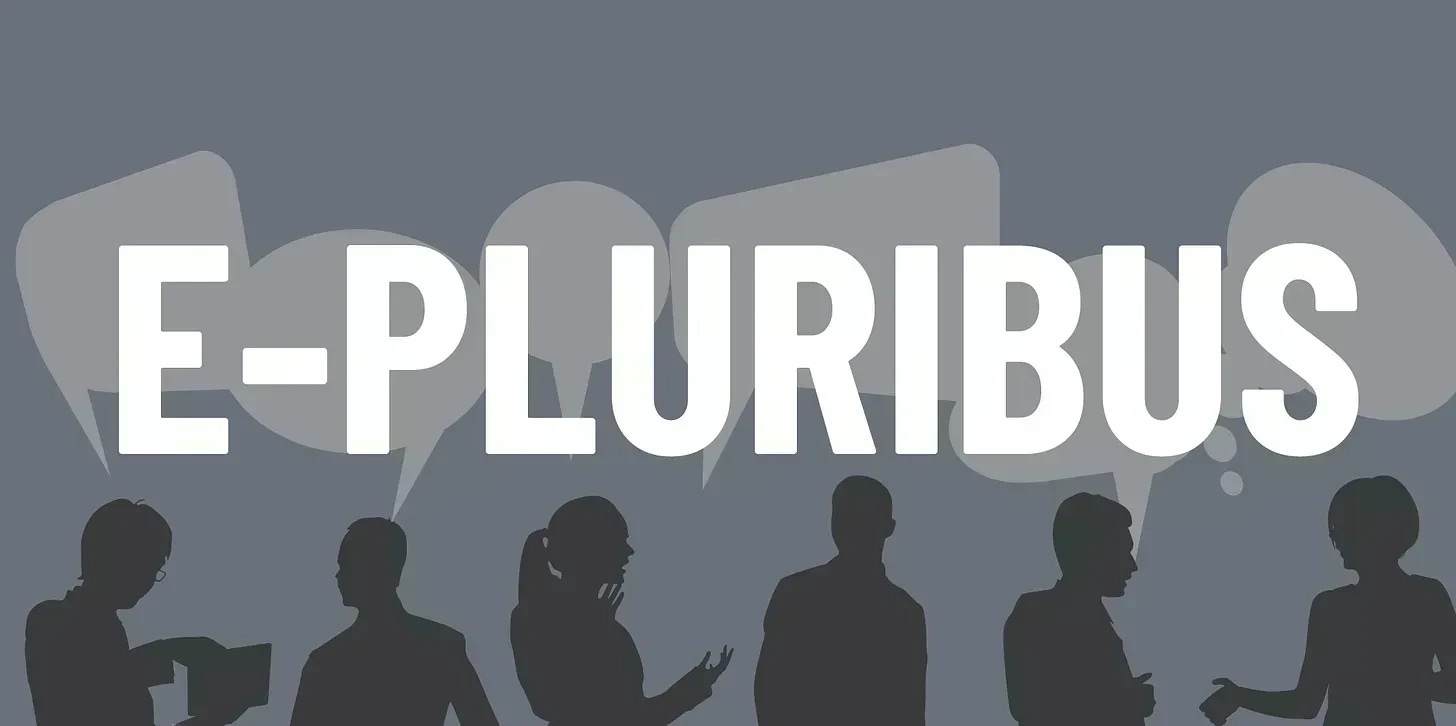E-Pluribus |June 9, 2025
University caught spying on students? Oklahoma defends 1A. Feds can't punish journalists.
A round-up of the latest and best musings on the rise of illiberalism in the public discourse:
Tom Perkins: University of Michigan using undercover investigators to surveil student Gaza protesters
The University of Michigan allegedly spent nearly $1 million spying on its own students, then used the investigations to justify punishing them for holding the wrong political opinions. Tom Perkins at The Guardian has the story:
The University of Michigan is using private, undercover investigators to surveil pro-Palestinian campus groups, including trailing them on and off campus, furtively recording them and eavesdropping on their conversations, the Guardian has learned.
The surveillance appears to largely be an intimidation tactic, five students who have been followed, recorded or eavesdropped on said. The undercover investigators have cursed at students, threatened them and in one case drove a car at a student who had to jump out of the way, according to student accounts and video footage shared with the Guardian.
Students say they have frequently identified undercover investigators and confronted them. In two bizarre interactions captured by one student on video, a man who had been trailing the student faked disabilities, and noisily – and falsely – accused a student of attempting to rob him.
The undercover investigators appear to work for Detroit-based City Shield, a private security group, and some of their evidence was used by Michigan prosecutors to charge and jail students, according to a Guardian review of police records, university spending records and video collected in legal discovery. Most charges were later dropped. Public spending records from the U-M board of regents, the school’s governing body, show the university paid at least $800,000 between June 2023 and September 2024 to City Shield’s parent company, Ameri-Shield.
Nicole Stelle Garnett, Tim Rosenberger: Oklahoma’s Governor Is Taking the Lead on Religious Liberty
Although the First Amendment is supposed to protect religious expression, some states have been discriminating against faith-based organizations for many years, argue Nicole Stelle Garnett and Tim Rosenberger. This could change, they speculate, if more states follow Oklahoma’s lead and begin properly interpreting the Free Exercise Clause:
Oklahoma governor Kevin Stitt has led the way in the fight for religious liberty. In March, Stitt issued an executive order that calls on the state government to follow the U.S. Constitution. Executive Order 2025-08 instructs Oklahoma agencies to review existing policies, purge unconstitutional exclusions, and make clear that religious and secular organizations alike may access public funds, licenses, and programs on equal terms.
…
This is the bare minimum required by the First Amendment, which—despite popular misconceptions—does not mandate a strict “separation of church and state.” Rather, it bars the federal government from establishing a religion and guarantees that all religions, religious individuals, and religious organizations enjoy the same rights and opportunities as their secular counterparts.
…
Whether rooted in interpretive error or religious bias, lawmakers across the U.S. have imposed a range of restrictions on religious groups. These have taken many forms: denying licenses to faith-based foster-care providers, excluding religious schools from publicly funded programs, and telling religious nonprofits that government partnerships require them to sideline their beliefs and practices.
The Supreme Court has repeatedly invalidated such exclusionary regimes. In Trinity Lutheran Church v. Comer (2017), the Court held that a church-run preschool could not be barred from a public playground-resurfacing program just because the school was religious. In Espinoza v. Montana Department of Revenue (2020), it held that the state could not exclude religious schools from scholarship programs. And in Carson v. Makin (2022), the Court reaffirmed that the state of Maine could not disqualify religious organizations from participating in a public benefit.
…
Other states should follow Oklahoma’s lead. Similar executive orders should be no-brainers for Governors Glenn Youngkin of Virginia, Kay Ivey of Alabama, and Brian Kemp of Georgia, all of whose state laws variously exclude religious organizations from programs ranging from school-bus-fuel tax rebates to state-employee charitable campaigns. Governors Josh Shapiro of Pennsylvania, Kathy Hochul of New York, and Jared Polis of Colorado should also bring their states into constitutional compliance by clarifying that religious entities are eligible to participate in public programs such as pre-K services.
Robby Soave: Terry Moran Insulted Stephen Miller? That's None of the Government's Business.
Politicians may complain about how reporters cover them, but they absolutely cannot pressure news outlets to punish their journalists for mean tweets. The federal government tried to do just that over the weekend, and Robby Soave at Reason calls shenanigans:
Terry Moran is a senior national correspondent for ABC News. Over the weekend, his employer suspended him over a statement he posted (and subsequently deleted) on X. In it, Moran described Stephen Miller, deputy White House chief of staff, as "richly endowed with the capacity for hatred."
"You can see this just by looking at him because you can see that his hatreds are his spiritual nourishment," wrote Moran. "He eats his hate."
The tweet drew a fierce rebuke from Vice President J.D. Vance, who described it as an "absolutely vile smear." Vance, of course, is entitled to that opinion. But White House press secretary Karoline Leavitt went a step further, declaring that "we"—i.e., the federal government—would be inquiring with ABC about disciplinary action.
This is a textbook example of "jawboning"—when the government tries to accomplish some censorship by threatening improper government action. It is exactly the sort of thing that conservatives rightly hated about the previous administration: President Joe Biden, his senior advisers, and various federal employees browbeat social media companies into taking down content that the feds deemed wrong, hateful, or dangerous. They didn't just say that they disagreed with major platform moderation policies: They raised the possibility of punitive legislation against Facebook, Google, and Twitter unless they complied.
Around X
Amid the riots in Los Angeles, philosopher Edward Feser helpfully reminds the world that protesting and rioting are fundamentally different: the first is protected speech, the second is a crime.
UK physician Calum Miller says his wife and at least one other protestor were arrested in Belgium for…holding signs. No charges were filed and they were released later the same day. Of course, the real question is why they were arrested in the first place.
Conservatives spend lots of time panicking about liberals in higher education. Echoing our own concern, Christina Hoff Summers explains that illiberalism is the real threat in our universities.









